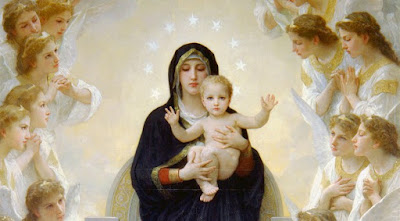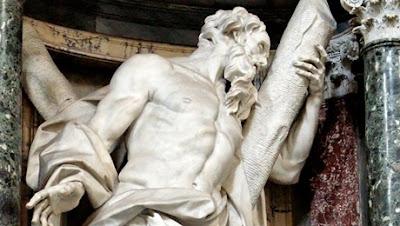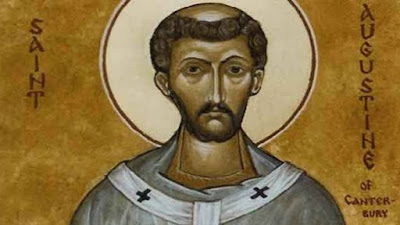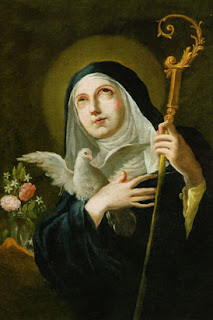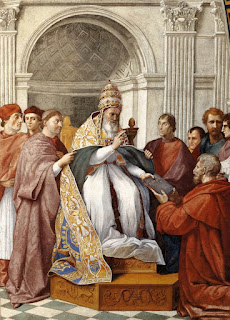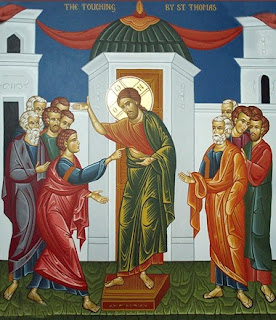Thomas Assures Us of Christ’s Resurrection Beyond Doubt
(This Sunday's Gospel, for the second Sunday of Easter, is the story of Thomas' profession of faith upon encountering the risen Lord in the Upper Room.) Saint Thomas, the Apostle who at first did not believe, has become for the Church one of the first and most compelling witnesses to the Resurrection of Christ. His initial skepticism mirrors that of many. May his profession of faith upon touching Our Savior's wounds, "My Lord and my God!", redound through the ages to convince and confirm others that Christ's Incarnation, ministry, and victory over sin and death are empirically and existentially real. Jesus' reply to Thomas, "Have you come to believe because you have seen me?" Blessed are those who have not seen and have believed," is less a condemnation of Thomas and more a confirmation of the demands of faith. Among the Apostles, Thomas does not stand out. His knowledge of Jewish scripture and well-formed conscience enabled him to r
